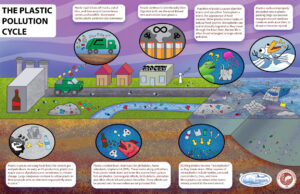

CCRW is currently partnering with Dr. Imari Walker-Franklin at RTI International to research plastic chemicals in waters of the White Oak River Basin. The goal of the project is to identify the types of chemicals coming from roadways and their presence in surface waters. Chemicals from plastics can be harmful to humans and wildlife and the New River is an important area for fishing and boating.
The sampling is focused on roadways that intersect with waters of the New River in Onslow County. So far, we have sampled 6 different locations throughout the middle New River area. Whole water samples were taken from rivers and streams that flowed under roadways, including Beulaville Hwy, Rhodestown Rd, Cow Horn Rd, Lejeune Blvd and Hwy 17 Business.
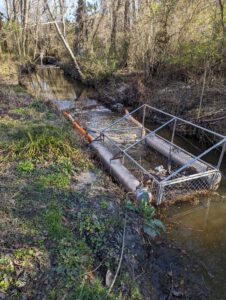 |
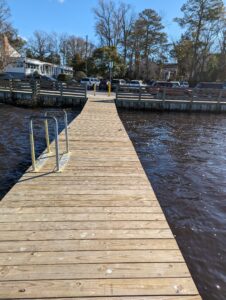 |
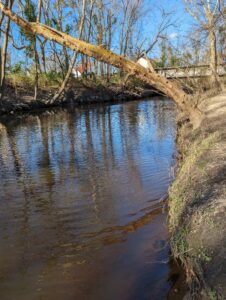 |
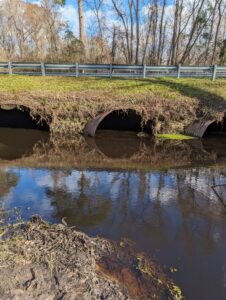 |
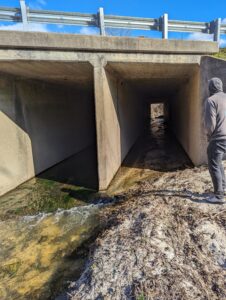 |
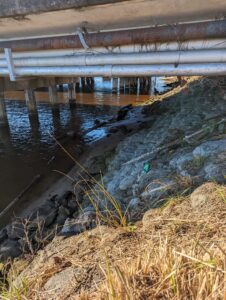 |
Samples were processed by Dr. Walker – Franklin’s lab and looked specifically for tire related chemicals.
RTI is home to experts across the social sciences, laboratory sciences, international development sectors, and engineering disciplines—each driven by the challenge of solving complex problems and improving the lives of people around the world. Imari Walker-Franklin is a Research Chemist with RTI’s Discovery Science Division. As an environmental engineer, she contributes to the development of suspect screening, non-targeted chemical analysis and other research interests of the Analytical Sciences group, including understanding the effects of PFAS chemicals. Dr. Walker-Franklin is a subject matter expert with practical experience with operating and maintaining liquid chromography with tandem/high-resolution accurate mass spectrometry systems (LC-MS/MS and LC-HRAMS).
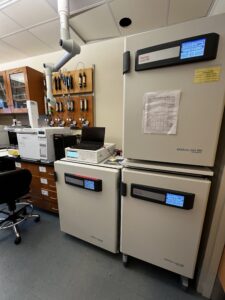 |
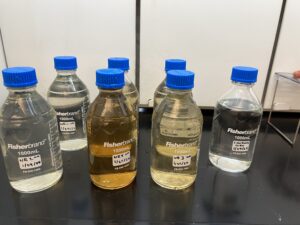 |
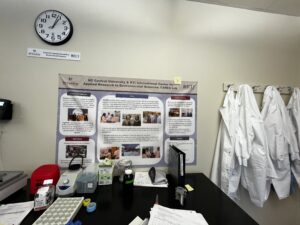 |
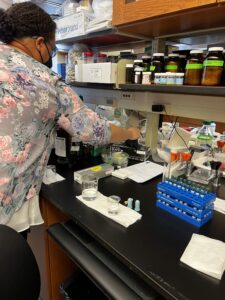 |
Picture: RIDER, L. Dr. Walker-Franklin’s lab at RTI and where our water samples are processed for this project.
STAY TUNED FOR THE RESULTS OF THIS RESEARCH AND FUTURE RESEARCH.
This research aligns with CCRW’s Water Quality for Fisheries Program which was developed through collaboration with the coastal commercial and recreational fishing community, water quality researchers, and coastal water quality advocacy organizations.
Through a process of surveying fishers in coastal NC, Industry Working Group meetings and water quality research, Five Water Quality Priorities were identified.
Water Quality Priorities Identified by Coastal North Carolina Fisheries Representatives:
- Agriculture and Factory Farm Runoff
- Stormwater Runoff from Roads, Highways, and Parking Lots
- Industrial Pollutants
- Plastic Pollution
- Municipal Wastewater Treatment Plants and Septic Tanks
